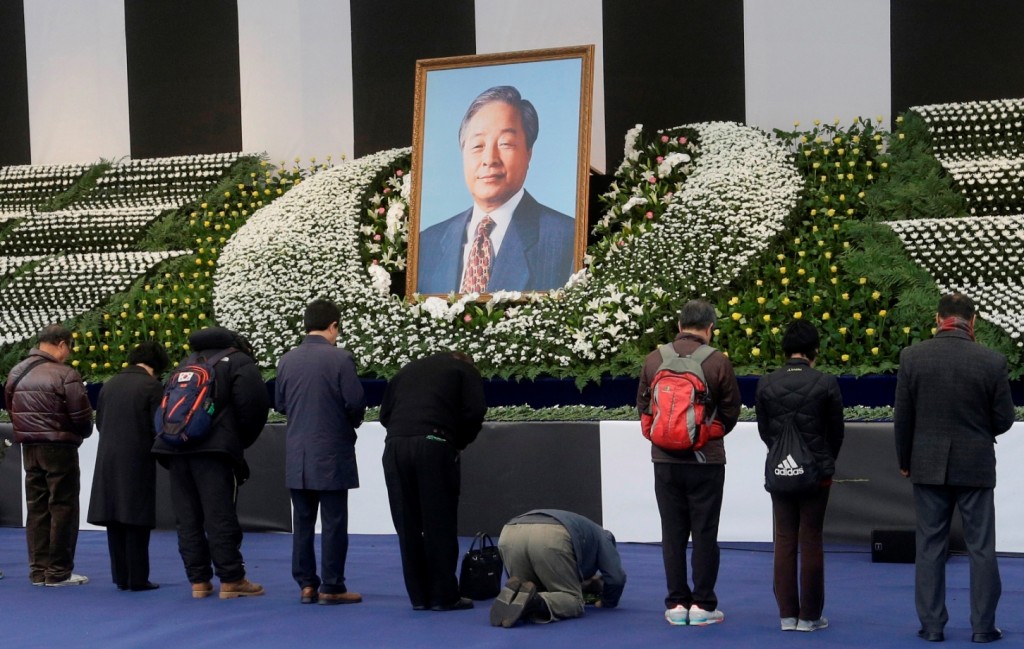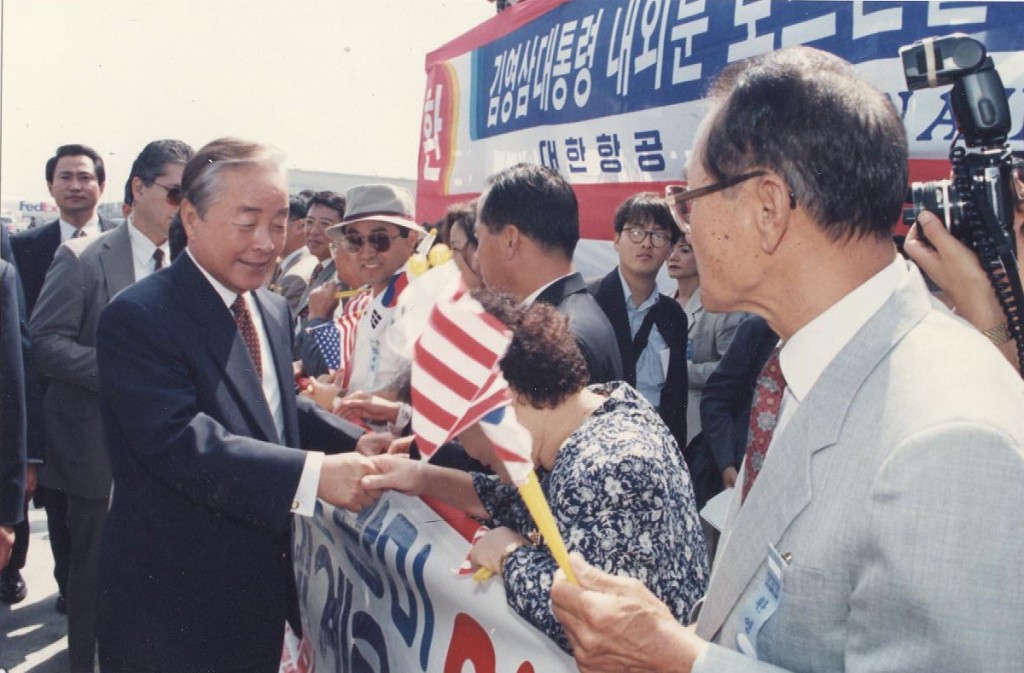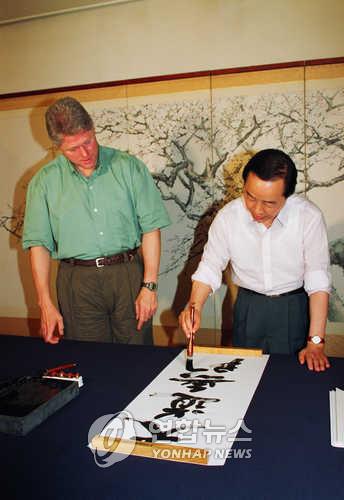- California Assembly OKs highest minimum wage in nation
- S. Korea unveils first graphic cigarette warnings
- US joins with South Korea, Japan in bid to deter North Korea
- LPGA golfer Chun In-gee finally back in action
- S. Korea won’t be top seed in final World Cup qualification round
- US men’s soccer misses 2nd straight Olympics
- US back on track in qualifying with 4-0 win over Guatemala
- High-intensity workout injuries spawn cottage industry
- CDC expands range of Zika mosquitoes into parts of Northeast
- Who knew? ‘The Walking Dead’ is helping families connect
Coast to coast, Korean American communities remember former President Kim Young-sam

Mourners pay tributes in front of a memorial altar for the late former South Korean President Kim Young-sam in front of Seoul City Hall in Seoul, South Korea, Monday, Nov. 23, 2015. Kim, who formally ended decades of military rule in South Korea and accepted a massive international bailout during the 1997-1998 Asian financial crisis, died on Sunday. (AP Photo/Ahn Young-joon)

South Korean President Kim Young-sam greets locals after arriving for an official visit to Los Angeles in 1996. (Korea Times file)
By Tae Hong
The Sunday death of former South Korean president and democratic leader Kim Young-sam at age 87 has spurred an outpouring of mourning and memorials across Korean American communities, from coast to coast.
In Los Angeles, home to an estimated 200,000 overseas Koreans, news of Kim’s passing triggered memories of his visit to the city for Koreatown locals.
“President Kim will go down in history as a leader of South Korean democracy. We will remember his efforts in transforming the real-name financial transaction system, eradicating corruption and in leading an investigation into the secret funds of the presidential office. We hope his championing of unification and cooperation lends itself to the Korean American community as well,” said James Ahn, president of the Korean American Federation of Los Angeles.
“President Kim worked his entire life for democracy,” said LA Pyongtong President Im Tae-rang. “He stood at the center of Korean history. I sincerely mourn his passing and hope we can all remember him and the legacy he leaves behind.”
Kim visited Los Angeles in 1993 and 1996.
“After taking office, he made an official visit to Los Angeles and ate breakfast with locals at a nearby seolleongtang restaurant. I’m very sad about the news,” said Kim Young-tae, a former KAFLA president.
“He was the president who had the most respect from me, so hearing news of his passing breaks my heart,” said Haley Lee, a local. “I hope he goes to a good place and rests comfortably.”
The Washington, D.C., community remembers Kim most for his role in dedicating the Korean War Veterans Memorial — perhaps the most prominent such location in the country — in 1995 to a park just southeast of the Lincoln Memorial.
The space was opened to commemorate the 42nd anniversary of the Korean War armistice.

South Korean President Kim Young-sam, right, writes a banner to gift to U.S. President Bill Clinton, left, during Clinton’s visit to South Korea on July 11, 1993. (Yonhap)
Kim visited the memorial with then-U.S. president Bill Clinton.
Clinton, who during his presidency was at times at odds with Kim, in particular on actions to take regarding the North Korean nuclear issue, but who later wrote of Kim’s hospitality and the importance of maintaining a U.S.-South Korea friendship in his 2004 autobiography “My Life,” told Yonhap Sunday that he sends his condolences to South Korean citizens.
Clinton said Kim’s vision lent to the realization of democracy in South Korea.
“I will never forget the hospitality shown to me by President Kim during my visit to South Korea in 1993,” Clinton said.
Kim, who headed the country from 1993 to 1998, was best known for formally ending military rule in South Korea, for shutting down the Hanahoe, a notoriously corrupt group of military officers headed by former leader Chun Doo-hwan, and for his administrative action taken during the Asian financial crisis.
He died inside Seoul National University hospital from severe blood infection and acute heart failure.
News of Kim’s death lent to the installation of a number of memorial altars in New York City.
“A big star of South Korean democratization has passed,” said Kim Min-sun, president of the Korean American Association of Greater New York. “President Kim is gone, but we put together a memorial altar to remember his role in pushing democracy to full bloom.”
Memorials are set up at the association, its New Jersey counterpart and inside the New York and San Francisco Korean Consulate Generals.
















Pingback: Korean American Newspaper New York | burger - food in newyork
Pingback: Korean Bbq Washington Nj | grill - charcoalgrill